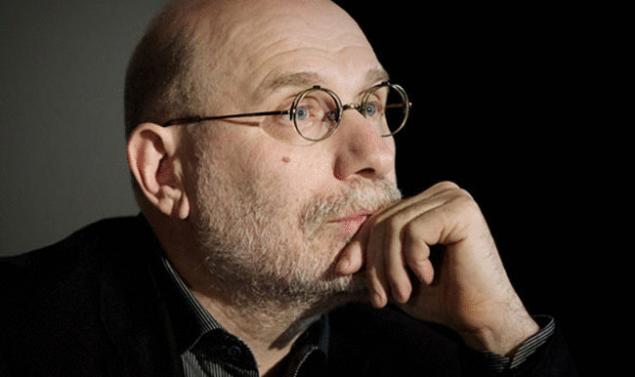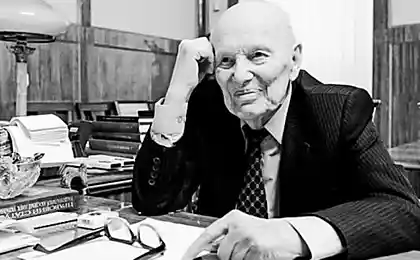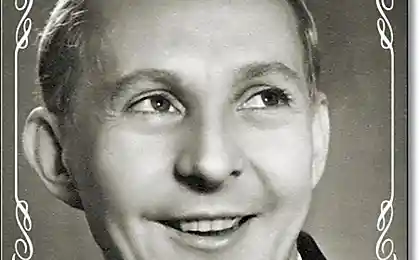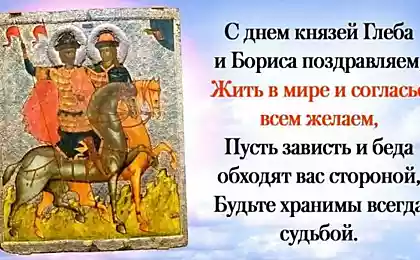142
Secrets of longevity from the writer and orientalist Boris Akunin

Among the centenarians surprisingly few famous people. As you begin to understand, it turns out that almost everyone who reaches deep, deep old age has lived an ordinary, low-event life. They burned brightly and smoothly, so they did not burn out for a long time.
But there are exceptions.
Interesting with politicians and statesmen. It seems that for this category of celebrities, the most reliable ticket to a long life is to collapse from the top in time. After balancing at the top of the political pyramid, where stresses and risks are full, leaving the light into the shadows often becomes a powerful revitalizing stimulus - like a second birth. Those who do not die of grief quickly get a good chance of a super long race. Especially beneficial for some reason opal, crushing collapse and even imprisonment (as in the case of the Young Marshal).
As an archetypal example, I will give a story from domestic history.
In the portrait, the last ataman of the Zaporozhye Sich Petro Kalnyshevsky, a holder of the Order of Andrew the First-Called, a lieutenant general of the Russian army.
When Catherine in 1775 decided to abolish the Cossack slave, the ataman was already very old. He was exiled to Solovki and kept there in terrible conditions so that he would die as soon as possible. They were locked up forever in a tiny cell, where they were allowed to breathe twice a year. They write that by the end of the imprisonment, a layer of sewage accumulated there. Any big guy would give God his soul. But the old man was in no hurry to move to another world. He spent a quarter of a century in prison, after the amnesty refused to go free and died only in 1804, having a family of 113 years, that is, he managed to live already in three centuries: XVII, XVIII and XIX.
When Catherine in 1775 decided to abolish the Cossack slave, the ataman was already very old. He was exiled to Solovki and kept there in terrible conditions so that he would die as soon as possible. They were locked up forever in a tiny cell, where they were allowed to breathe twice a year. They write that by the end of the imprisonment, a layer of sewage accumulated there. Any big guy would give God his soul. But the old man was in no hurry to move to another world. He spent a quarter of a century in prison, after the amnesty refused to go free and died only in 1804, having a family of 113 years, that is, he managed to live already in three centuries: XVII, XVIII and XIX.
Although not to such an extent, the firemen of our “anti-party group” turned out to be exceptionally tenacious. 1957. Having collapsed from Olympus, Molotov and Kaganovich safely survived all their former comrades in the Politburo - even the legendary unsinkable Mikoyan, who pulled "from Ilyich to Ilyich without heart attack and paralysis." Anastas Ivanovich died only in the 83rd year, which by current standards is not even considered longevity (in the West it now begins with 95). But Vyacheslav Mikhailovich in his quiet oblivion survived to 96 years; Lazar Moiseevich - and even up to 98.
Another victim of political intrigue, Marshal Sokolov, banished miserably from the Ministers of Defense allegedly because of the flight of Matthias Rust, lived and lived after this for many more years and retired to the other world only a few months ago, at the 102nd year of birth.
And his Vietnamese colleague Vo Nguyen Ziap, whose ringing name I have memorized since student days (you can ask me now what the leadership of the fraternal socialist countries was called, you can’t cut it out with an axe), is still alive, even though he flew out of all posts more than 30 years ago.
In addition to disgraced statesmen, philosophers differ in enviable longevity, but this is understandable. Nothing wise will shock them. If some plague happens, the philosopher waved his hand and said, “This too will pass.” The heart muscle with this approach wears out more slowly.
Members of royal families are also well preserved, especially if they go into the shade on time. In this case, there is a double healing effect: as a politician who has lost relevance and as an august person, whose whole life is a dream seen in a dream. Cut yourself ribbons at the ceremony and sleep with your eyes open at the charity banquets.
The English strongly disliked Elizabeth Sr., while she sat with her husband on the throne. And after she was widowed in 1952 and became a harmless queen consort, everyone adored her - and the further, the more.
Of the record holders of this category, my favorite is the Japanese Prince Higashikuni (1887-1990), the uncle of Emperor Hirohito. Prince Higashikuni in his youth (my, not his) intrigued me with zigzags of his biography. Highness was in his 80s and I thought he was an incredible Methuselah, and he still had 15 years to live.
In his youth, the prince was supposed to be sloppy. He left for a fasting in Saint-Cyrus and got so caught up in the merry French capital that it was impossible to pull him back to Japan for six whole years. In the end, the government dispatched a determined chamberlain to bring the ill-fated Highness home.
However, with age, Higashikuni settled down and made a great military career. He played a pivotal role in history: in August 1945, he was specially appointed prime minister to guide the country through the horror and shame of surrender. Perhaps, if his time in power had been prolonged, the prince would not have lived so long. But two months later, with a scandal (now no matter what – nothing particularly interesting) he was dismissed and since then never did anything important.
He was also Japanese, which is a big plus in terms of longevity.
Last fall, statistics reported that Japan leads the world in the number of “sentinarii” – people who are more than 100 years old. In the archipelago now 50 with something thousands. The oldest man and the oldest woman in the world today are Japanese (115 and 114 years, respectively).
Therefore, those of us who are not a statesman, not a philosopher and not the most august person should ask the secrets of longevity from ordinary Japanese.
I'll risk answering for them.
1. It is necessary to live meaningfully, to treat life as a Path, and not as trampling in place or running in a wheel.
2. You should love your work and not consider such love a perversion. The alarm clock will not shorten your life by a few hours.
3. We should eat more algae and less animal fat. Preferably with sticks - they fit less than in a spoon.
4. It is necessary to conduct a mass diagnosis of the population for oncology.
5. And the most difficult (even probably impossible). The Japanese have a fundamentally different regulator of moral behavior: not conscience, but shame. We, having committed some buck, then remorse our conscience, and this is stress. There is no word for conscience in Japanese. But there people from childhood are terribly afraid to get into a shameful position and therefore prefer to behave decently. If a Japanese person is a good person and has lived his life unashamedly, he has nothing to remorse about. If bad, the idea of tormenting the torment of conscience does not come to mind.
Source: borisakunin.livejournal
Source: /users/1080























